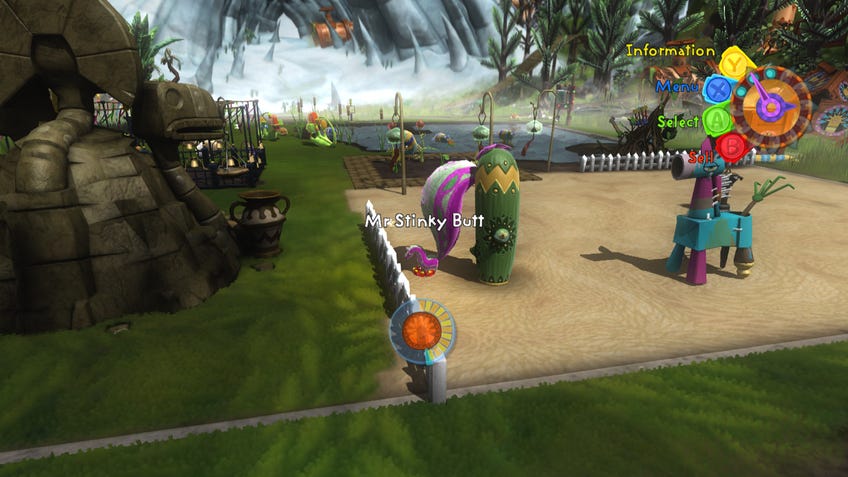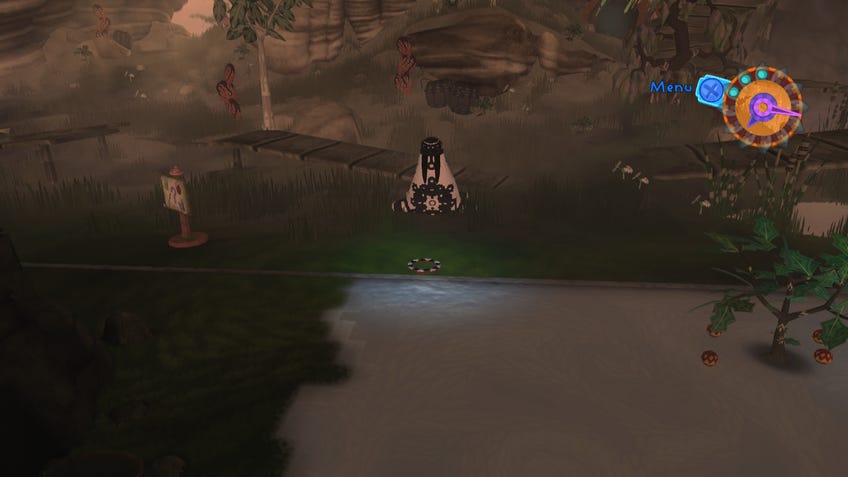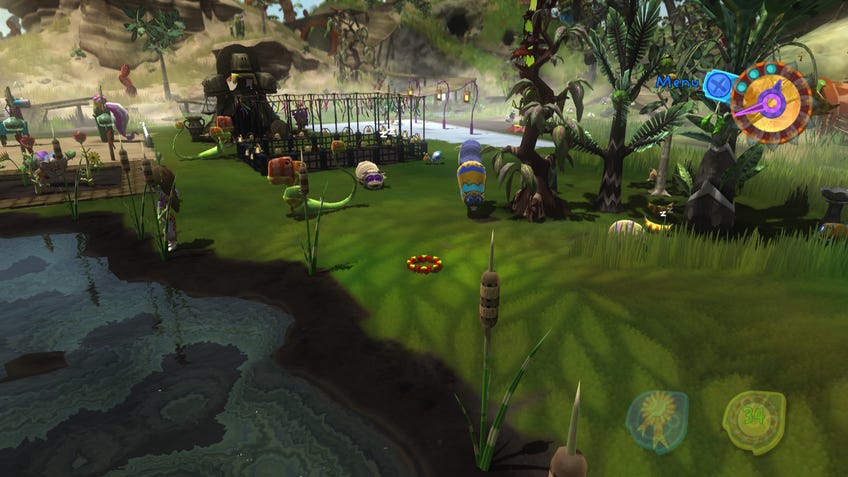It’s about time we got a Viva Pinata board game
A smashing idea.
Viva Pinata is a 2006 video game about managing a garden populated by living pinata - and I love it.
Developed by Rare - the beloved British developer behind the original Donkey Kong Country series, Banjo Kazooie and, more recently, Sea of Thieves – Viva Pinata is probably one of the company’s lesser-known series, which doesn’t speak for its quality. Though the concept behind the original Viva Pinata and its 2008 sequel, Viva Pinata: Trouble in Paradise, is difficult to explain, it’s easy to understand its appeal once you start playing it.
Both mainline entries in the series are stuffed full of that iconic Rare charm that has made the studio a household name, from the pun-names of each pinata that combine animals with sweet treats – like custaceans, swanana and newtgats - to the houses they live in, like how the mousemellows inhabit a giant grandfather clock. The gameplay loop itself is also hugely addictive, with the game doling out experience points and unlocking new content regularly enough to make it difficult to step away.

With the recent announcement that we would be seeing a Sea of Thieves board game, after the release of its own RPG adaptation, it’s my ultimate hope – besides from seeing a third Viva Pinata game – that the next Rare series to be adapted into a board game will be Viva Pinata.
Despite its strange premise as a life simulation video game – meaning a game that revolves around managing a kind of ecosystem – Viva Pinata would fit incredibly well into a board game format. Working towards different objectives, gathering resources and managing various duties are all classic gameplay mechanics found in both life sim video games and eurogames: a loose genre of strategic board games that includes the likes of Scythe and Terraforming Mars.
A Viva Pinata board game could see players opening up their own gardens with the goal of being the first to reach a certain level milestone.
Though there are no set goals in Viva Pinata, there are ways to gain experience – which is how you progress within the game. You can gain experience by having pinata visit your garden for the first time, become a resident, romance to make baby pinata, grow plants and discover secrets like variants of pinata. Whilst growing plants requires you to plant a seed and ensure it remains well-watered, getting pinata to visit, become residents and romance is a little more complicated depending on the type of pinata. Pinata you encounter early on, such as bispotti or whirlm, are relatively simple to coax into your garden and have families, whereas pinata that arrive later – such as roarios and elephanilla – need a lot more.
A Viva Pinata board game adaptation could see players opening up their own gardens with the goal of being the first to reach a certain level milestone, but the freedom to obtain that goal however they want to. Whilst the starting line-up of pinata may feature creatures that only require a few things to become residents, like having a certain type of vegetable or flower in your garden, later pinata could have much more complicated requirements – such as having a certain amount of a terrain type in your garden – thus reflecting player progression found within the video games.
Players could choose which pinata they might want to attract into their garden, with the higher level pinata granting more experience points. To make them even more desirable, higher-level pinata may also come in limited amounts – with some pinata being one-of-a-kind like the rare dragonache or chocolodus – just to increase the competitive and player interaction aspect of the video game board game.
Possible actions could include visiting shops, constructing buildings, planting and harvesting, as well as romancing pinata.
As players progress they’re able to earn more chocolate coins, the main currency in the video games, by selling off plants, fruit, vegetables and even pinata that they might not want in their garden anymore. Having more chocolate coins means players can purchase useful tools, new items, houses and accessories for their pinata and any seeds or produce they’ve obtained or grown in the past. Eventually, players can even send off for pinata types that have already become residents. All of these things are essential to getting even further in the game – which could be reflected within a board game adaptation.

As players gain more pinata, vegetables, fruit and flowers within their tabletop gardens, they could be able to sell them off in a specific phase for the chocolate coins they’d need to acquire new items to complete new objectives. Possible actions could include visiting shops, constructing buildings, planting and harvesting, as well as romancing pinata. Any pinata looking for residency could go to players who have successfully completed their requirements at the end of a round. Players could choose to hire workers or construct unique buildings to gain additional actions and/or extra sources of income.
There could also be random events such as sales taking place in certain shops, the opportunity to unlock unique variants or, in less positive news, the arrival of the wicked Professor Pester and his ruffian friends to wreck players’ gardens and smash their pinata - unless they're able to provide the required bride to prevent it in time. Players would be able to earn additional experience by completing public and private goals like having a certain number of pinata in their garden or growing specific varieties of fruits.
Viva Pinata may have sat dormant as a video game series for 15 years, but that doesn’t mean it wouldn’t make the journey over to the tabletop space as gracefully as a swanana on the water.


